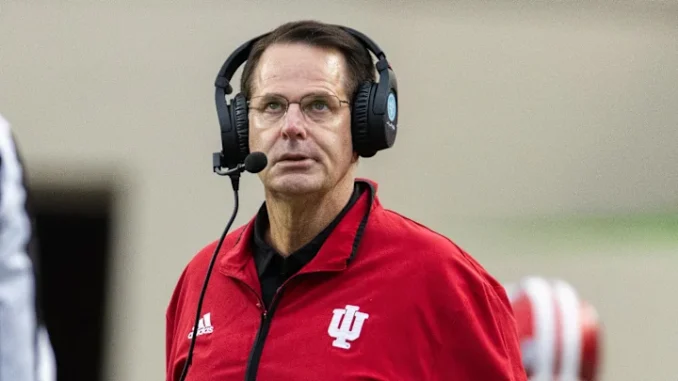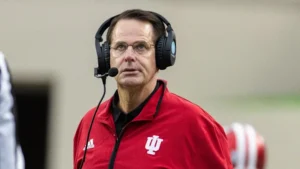
BREAKING: Indiana Hoosiers Head Coach Curt Cignetti Sparks Firestorm After Boycotting NCAA Pride Night
In a move that has ignited a nationwide firestorm of reaction, Indiana Hoosiers head football coach Curt Cignetti has announced he will boycott NCAA Pride Night, scheduled to take place during the upcoming season. The veteran coach issued a firm statement on Monday, declaring, “On the field, it should be about football, not politics or agendas.” His remarks, both applauded and condemned in equal measure, have thrown college football into the center of a cultural and ideological debate that shows no sign of cooling down.

Cignetti’s decision not to participate in the Pride-themed night comes as NCAA institutions continue efforts to promote inclusivity and visibility for LGBTQ+ athletes and fans. Events like Pride Night have become common in many sports leagues, often celebrated with rainbow-themed gear, end zone decals, and public affirmations of support. While many have praised these efforts as overdue and necessary, others—like Coach Cignetti—argue that such initiatives shift the focus away from the sport itself. “Our job is to coach, compete, and win—not campaign,” he added, during a brief press interaction.
The backlash and support were almost immediate. Social media erupted with hashtags both criticizing and supporting Cignetti. Advocates for LGBTQ+ representation in sports labeled the coach’s comments “regressive” and “out of touch,” accusing him of alienating players and fans who identify as queer. On the other hand, supporters of Cignetti praised him for “taking a stand for traditional values” and “keeping politics off the gridiron.” Prominent conservative commentators quickly rallied behind him, while former athletes and activists expressed concern about the impact of his message on young LGBTQ+ athletes.

University officials have yet to release an official statement addressing Cignetti’s stance, but sources close to the athletics department suggest there are internal discussions on how to balance institutional values with the coach’s freedom of expression. For now, the Hoosiers’ locker room remains tight-lipped, though one anonymous player told a local reporter, “It’s tense in here. Some guys are fired up. Others just want to play ball and move on.” Whether this decision will affect team morale or recruiting efforts remains to be seen.
As the NCAA navigates its evolving role in broader social issues, Coach Cignetti’s boycott of Pride Night underscores a deepening divide in college sports. The line between personal beliefs, institutional values, and the expectations of a diverse fanbase is blurring. While football may be a game played on the field, the implications of this decision are spilling far beyond the sidelines—forcing fans, players, and institutions to confront the question: Where does the game end, and the message begin?
Leave a Reply